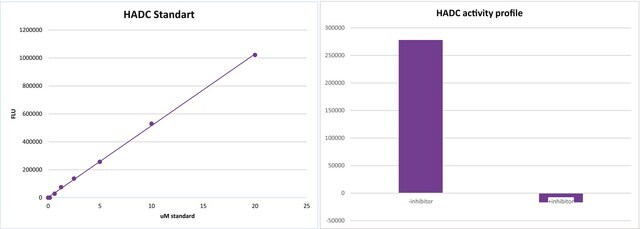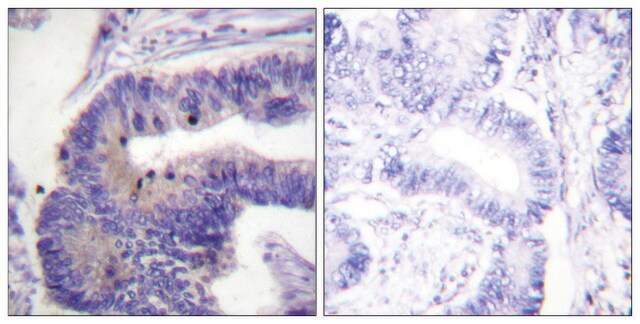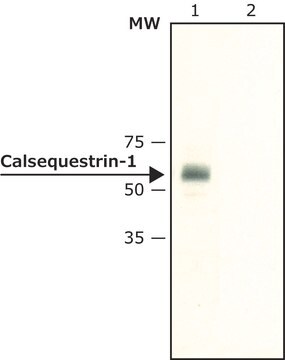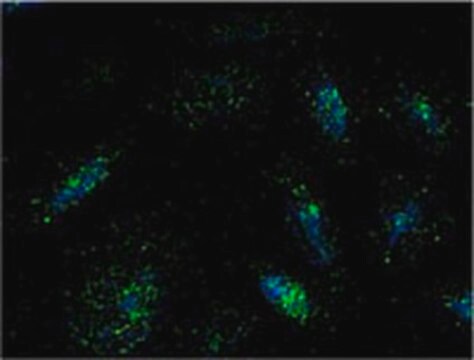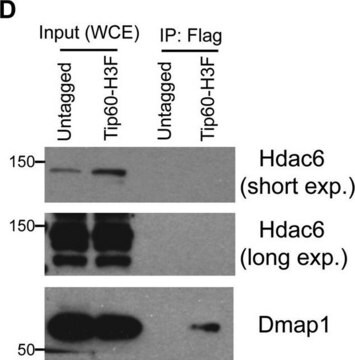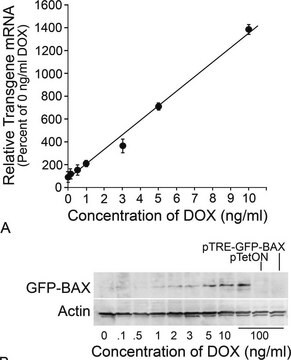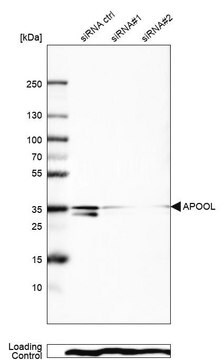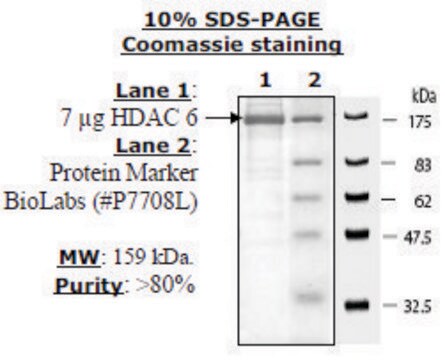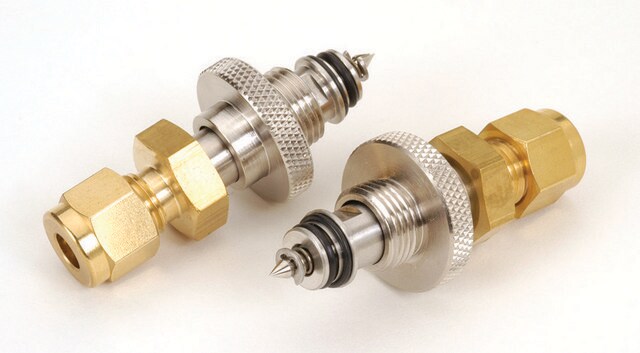SAB4504190
Anti-phospho-HDAC6 (pSer22) antibody produced in rabbit
affinity isolated antibody
Sinonimo/i:
Anti-CPBHM, Anti-HD6, Anti-JM21, Anti-PPP1R90
About This Item
IF
IHC
WB
immunofluorescence: 1:100-1:500
immunohistochemistry: 1:50-1:100
western blot: 1:500-1:1000
Prodotti consigliati
Origine biologica
rabbit
Livello qualitativo
Coniugato
unconjugated
Forma dell’anticorpo
affinity isolated antibody
Tipo di anticorpo
primary antibodies
Clone
polyclonal
Stato
buffered aqueous solution
PM
antigen 131 kDa
Reattività contro le specie
human, rat, mouse
Concentrazione
~1 mg/mL
tecniche
ELISA: 1:1000
immunofluorescence: 1:100-1:500
immunohistochemistry: 1:50-1:100
western blot: 1:500-1:1000
N° accesso NCBI
N° accesso UniProt
Condizioni di spedizione
wet ice
Temperatura di conservazione
−20°C
modifica post-traduzionali bersaglio
phosphorylation (pSer22)
Informazioni sul gene
human ... HDAC6(10013)
Descrizione generale
Immunogeno
Immunogen Range: 7-56
Azioni biochim/fisiol
Caratteristiche e vantaggi
Stato fisico
Esclusione di responsabilità
Non trovi il prodotto giusto?
Prova il nostro Motore di ricerca dei prodotti.
Codice della classe di stoccaggio
10 - Combustible liquids
Classe di pericolosità dell'acqua (WGK)
WGK 1
Punto d’infiammabilità (°F)
Not applicable
Punto d’infiammabilità (°C)
Not applicable
Scegli una delle versioni più recenti:
Certificati d'analisi (COA)
Non trovi la versione di tuo interesse?
Se hai bisogno di una versione specifica, puoi cercare il certificato tramite il numero di lotto.
Possiedi già questo prodotto?
I documenti relativi ai prodotti acquistati recentemente sono disponibili nell’Archivio dei documenti.
Il team dei nostri ricercatori vanta grande esperienza in tutte le aree della ricerca quali Life Science, scienza dei materiali, sintesi chimica, cromatografia, discipline analitiche, ecc..
Contatta l'Assistenza Tecnica.